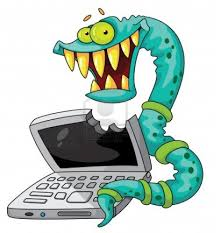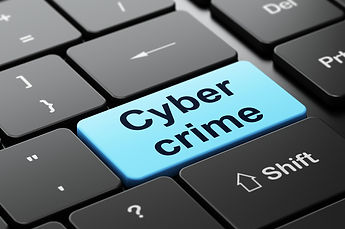Digital Citizenship
Digital Security
According to Mike Ribble (2011), digital security is “the electronic precautions to guarantee safety”.
Every aspect of our daily lives is filled with internet and technology. It is vital to protect yourself and your gadgets from criminals who wish to exploit them. Technology is constantly progressing and criminals are always finding ways to control it, so you must be continuously cautious and embrace new safety measures on a regular basis.
As more and more sensitive information is stored electronically, a correspondingly robust strategy should be developed to protect that information. At the very least, students need to learn how to protect electronic data (e.g., using virus protection software, creating firewalls, and making backups).
The idea of protecting what we have should not be foreign to anyone. We put locks on our doors, mount smoke detectors in our homes, and install security systems designed to protect our families and possessions. As a repository of personal information, a personal computer should have as many (if not more) security features as the home that surrounds it.
Why should anyone go to the trouble of installing these additional protections? Because technology intruders do not break in through the front door— they hack in through your Internet connection. Any computer that does not have virus protection (with up-to-date virus definitions) is vulnerable.
Any computer connected 24/7 to the Internet without firewall protection is defenceless against a snooper on the prowl. Having a wireless network without encryption is tantamount to offering free access to any and all comers.
Cyber Crimes
Viruses and Worms
Viruses are programs that attach themselves to a computer or a file. They then circulate themselves to other files and to other computers on a network.
Worms, unlike viruses do not need the host to attach themselves to. They merely make functional copies of themselves and do this repeatedly till they eat up all the available space on a computer’s memory.
Malware
Malware means malicious software. It is designed to secretly access an individual’s computer without his or her permission.
Most malware are software created with the intent of stealing data. Using these software’s which are usually disguised as harmless pop-ups and such, information about the users is collected without their knowledge. Examples of malware are network malware, mass-mailing malware.
Fraud
It is the use of computer technology to obtain funds belonging to someone else. Online fraud and cheating is one of the most profitable businesses that are growing today in the cyber space.
Some of the cases of online fraud and cheating that have come to light are those relating to credit card crimes, bank fraud, internet scams, identity theft.
Cyber stalking
Involves following a person’s movements across the internet by posting threatening messages on the bulletin boards frequented by the victim, and constantly bombarding the victim with emails.
Child Pornography
It is the using of internet to transmit child phonography. Includes sexual images involving children under puberty and those under legal adult age, and computer-generated images that appear to involve them in sexual acts.
Extortion / Blackmail
It works the same way as in the real world. The perpetrator threatens to reveal sensitive information of an online business.
Phishing
It the unlawfully accessing a computer without authorisation and sending multiple e-mails; resending multiple commercial email messages with the intent to deceive recipients, or falsifying header information in multiple email messages.
Ribble, Mike. Digital Citizenship in Schools : Nine Elements All Students Should Know (2nd Edition). Eugene, OR, USA: ISTE, 2011. ProQuest ebrary. Web. 9 December 2015.
Copyright © 2011. ISTE. All rights reserved.

Describe your image.

Describe your image.

Describe your image.

Describe your image.





